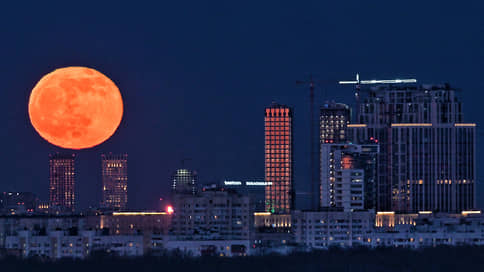In the spring, the number of transactions with elite real estate in Moscow decreased
[ad_1]

During the year, the primary market of elite real estate, in contrast to the mass segment, failed to win back the crisis recession. This spring, the number of transactions in Moscow was almost 18% lower year-on-year, while the total purchase budget was down 10%. This situation is connected, among other things, with the flow of buyers to the secondary market, where significant discounts are offered. But market participants have already considered the first signs of recovery in the market due to the return of solvent Russians who had previously left abroad and the limited availability of investment instruments.
The total volume of transactions with elite new buildings in Moscow in March-May amounted to 25 billion rubles, which is 10.7% less year-on-year, calculated by Intermark Real Estate. The number of transactions over the same period decreased by 17.6%, to 229. NF Group partner Andrey Solovyov believes that according to the results of the entire first half of the year, sales will be 14-15% less than for the same period in 2022.
Demand for elite new buildings is recovering more slowly than in the mass segment. According to Dataflat.ru, in March-May, 17.4 thousand transactions were concluded in new mass market buildings within the old borders of Moscow, which is 16% more year-on-year. Although in the entire Moscow region, including New Moscow and the Moscow region, the dynamics is worse: the number of transactions decreased by 2.4%, to 34.8 thousand.
AREA board member Grigory Ashikhmin, in addition to the uncertainty in the economy, connects the low activity of buyers with the pressure of the secondary segment and alternative forms of transactions. “In premium properties under construction, we often see significant discounts on concessions from individuals,” he explains. Analysts at Intermark Real Estate also noticed a general increase in secondary sales. “Over the past year and a half, competition from ready-made projects has noticeably increased,” confirms Mr. Solovyov.
The owner of IQ Estate Yunna Ervits explains that developers of elite projects, in turn, cannot reduce prices in projects that are already underway: “These are reputational risks associated with the negative attitude of buyers who purchased lots at higher prices.” Anna Radzhabova, director of the elite real estate department at Metrium Premium, also draws attention to the fact that during the period of rush demand, developers managed to accumulate significant financial reserves. This allows developers not to cut prices, even if there are no transactions in projects, the expert says.
According to Intermark Real Estate, the average budget for a transaction in luxury new buildings in the spring amounted to RUB 120 million, up 11.1% year-on-year. The NF Group names an average amount of 115 million rubles, which is 2% more than a year earlier. Mr. Ashikhmin draws attention to the fact that there are practically no investors on the market now: the main deals are made with apartments for personal use. At the same time, 55% of buyers of new buildings select projects at the final stages of implementation, Intermark Real Estate notes.
In the spring, the decline in sales in the elite segment was not as significant as in December-February, when the number of transactions fell 2.8 times year-on-year, to 138, Intermark Real Estate points out. This gave analysts a reason to count on the first signs of market recovery. “In April-June, for the first time since the end of 2021, we saw an increase in the number of transactions compared to the previous quarter,” says Andrey Solovyov.
Anatoly Dovgan, director of the market monitoring and valuation department at Intermark Real Estate, expects sales to recover in the fall, but warns that the market is clearly reacting to external fluctuations. “Political events, changes in exchange rates – all this can affect the actions of buyers and affect demand,” he explains. The expert believes that one of the main reasons for the possible growth in demand is the limited number of investment instruments, pointing out that buyers of luxury housing often have nothing else to spend money on. Yunna Ervits believes that the revival ensures, in particular, the return to the country of some solvent Russians who left last year and the fact that the markets of Dubai and Turkey, where they mainly buy housing, are overheated.
[ad_2]
Source link





